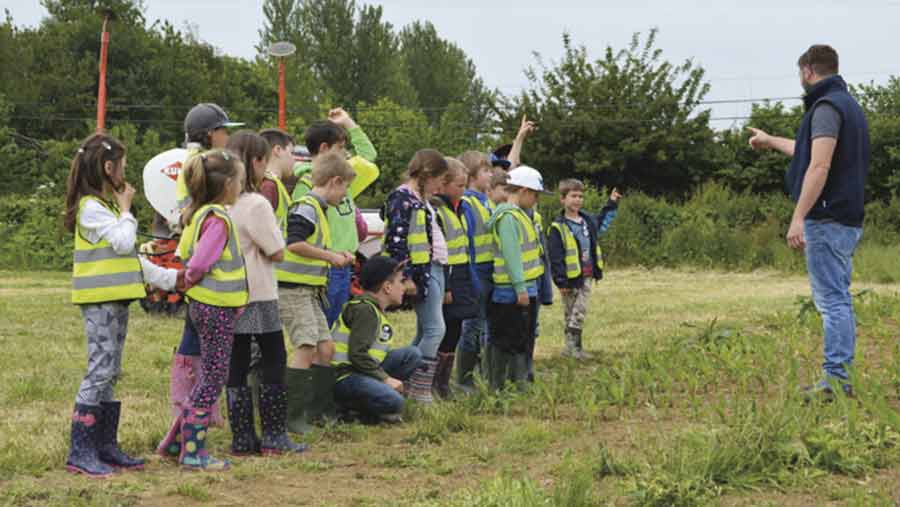Opinion: We should twin farms with schools
The challenge ahead of agricultural policymakers is to deliver “greater tangible benefit” to the taxpayer after Brexit.
What does that mean? And what could it look like? These are just two of the questions that I discussed with a group from Defra’s Future Agricultural Policy team when they visited our farm recently.
I expressed my disappointment that “education access” had been removed as an option under countryside stewardship.
 Ian Pigott farms 700ha in Hertfordshire. Ian is also the founder of Open Farm Sunday
Ian Pigott farms 700ha in Hertfordshire. Ian is also the founder of Open Farm SundaySee also: We have neglected our soils for too long
It dawned on me that a policy delivered by farmers offering tangible benefit to the taxpayer was staring me in the face – the twinning of farms with schools.
We built a “school” on our farm in 2014. The Farmschool hosts school visits for 8- to 18-year-olds throughout the year.
We welcome children from inner cities, disadvantaged areas, local towns and nearby villages.
Our objective is to link young people with farming, food and the natural environment while delivering to the needs of the curriculum.
With the help of experts and volunteers, we host around 4,000-5,000 children each year.
Our programme is devised in conjunction with each school and typically would include interactive activities, a farm walk, and cooking.

Among other things, children learn the synergies between healthy crops, animals and habitats and their own health and well-being.
Valuable experience
Our Farmschool programme has been a 15-year plan (some may say “obsession”) in the making.
I believe that investing in young people so that they can be informed, critical thinkers with an empathy to farming is a valuable learning experience for them and an invaluable ally for our industry’s future. Education is not promotion – and our industry still struggles with the subtlety of this.
I am not advocating that every farm needs a purpose-built facility. However, the intensity of what we do at the Farmschool has helped us understand where the greatest impact and most cost effective and tangible benefits can be made.
Demand is on the increase. Farming can deliver a sensory, engaged and relevant experience for nearly any subject within the curriculum.
The inspiring work of Face (Farming and Countryside Education), focusing on training teachers, is raising awareness and leading to more schools recognising the value that can be gained from a day on the farm.
I accept that hosting schools on farm is not for everyone. Some will be put off by exaggerated health and safety concerns, or thinking they don’t have the necessary skills.
I don’t deny there are challenges: time demands for pre-visits; risk assessments; general correspondence leading up to a visit; planning and preparation.
Tangible benefits
However a policy that twins a farm with a school across the country to deliver a visit a term to a chosen year group would offer significant tangible benefits for policymakers and would not need to be overly burdensome on the farmer.
An effective policy would encourage farmers to come together to help on visits.Three days per farmer per year would suffice.
At The Farmschool, we have found that layering multiple visits to the same group of children not only significantly reduces the amount of administration, it exponentially raises the impact and outcome to the child.
Beyond the curriculum delivery, it would showcase Pillar 2 investment in stewardship and be an excellent vehicle to answer Theresa May’s recent pledge to address mental health and well-being among young people. Meanwhile, it would also re-engage farming’s profile and value within the local community.
Justification would be easy. A future national policy that twins farms with schools would offer tangible benefit to the school, the child, the farmer, the taxpayer….and to Defra.
